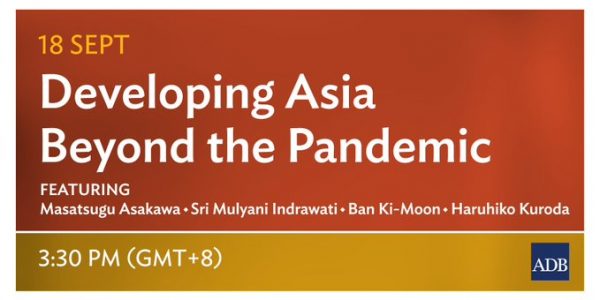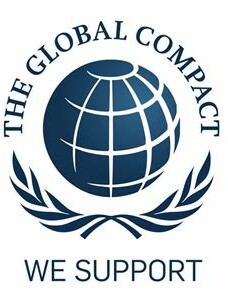Asia Development Bank: Developing Asia Beyond the Pandemic
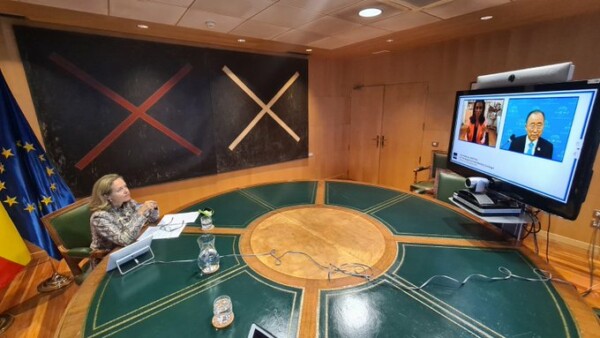
On September 18, 2020, Co-chair Ban Ki-moon participated in the Asia Development Bank’s Annual Meeting together with ADB President Masa Asakawa, Indonesia’s Minister of Finance Sri Mulyani Indrawati, and Bank of Japan’s Haruhiko Kuroda.
The COVID-19 pandemic has upended developing Asia’s economic expansion, threatening to halt its progress toward achieving the Sustainable Development Goals. Governments in Asia and the Pacific responded decisively to the crisis but now must get their economies on track while grappling with the constraints of the “new normal.” Join a distinguished panel as they explore policies for crisis response, safe reopening, inclusive recovery, and future resilience.
Watch the full event here.
“Now more than ever before, the world needs a new generation of thinkers and doers. We need thinkers who can appreciate the scale of the challenges before us. And we need doers who will step forward to act.” Ban Ki-moon
Read Ban Ki-moon’s Keynote Speech:
It is my great honor to address the 53rd Annual Meeting of the ADB Board of Governors.
It is truly regrettable that the Annual Meeting could not be held in Incheon, Korea, because of COVID-19. Thanks to advanced technologies, however, we are virtually meeting today to discuss a wide range of important agenda without any technical problems. I would like to hereby extend my special thanks to all staff who have made this meeting possible.
In this light, I believe this virtual setting manifests the theme of today’s meeting: Innovation, Inclusiveness and Integration.
Indeed, we are living through a period of converging crises and pressing challenges that have upended the international order and ushered in a new period of global unpredictability and risk.
COVID-19 has completely shifted the way we live; the climate crisis continues to deepen; economic powers are escalating tension; and technological advancement is pressuring countries around the world to constantly innovate.
Even before the pandemic took hold of our lives, populist skepticism and anger have fueled many of the seismic geopolitical changes we have witnessed in the recent years.
Now, these same dynamics are hindering our unified response to COVID-19 and climate change. Instead of cooperation, we have seen a failure in listening to scientists and experts, and a resounding lack of trust in mainstream media, political leaders and institutions.
Against this backdrop, we must understand that in our increasingly interconnected world, global challenges inherently require global solutions.
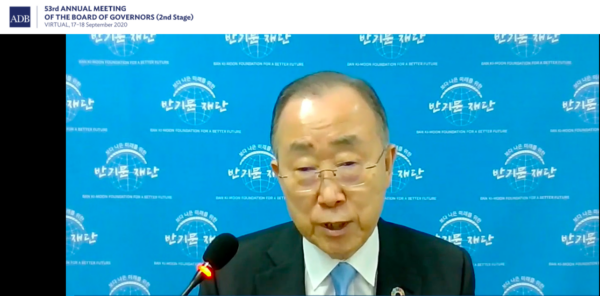
Today, I will highlight the global challenges of COVID-19 and climate change, which simply cannot be solved without international cooperation, and the UN’s role as the cornerstone of solidarity, partnership and recommitment to multilateralism.
I will also elucidate the essential role of education in solving the challenges of today, as well as cultivating the leaders of tomorrow.
- COVID-19
First, the COVID-19 pandemic has impacted our common reality in unprecedented ways. There have been over 30 million total cases of COVID-19 and nearly 1 million global deaths. The UN estimates that COVID-19 has cost 400 million jobs in the 2nd quarter of 2020 alone.
And behind these staggering numbers, COVID-19 has amplified existing inequities in health care, labor, housing, food, gender equality, and other key areas.
This pandemic has underlined the great need for global leadership and a strong multilateral response. Unfortunately, we are lacking both at such a critical time.
Indeed, in the last six months, we have witnessed a major failure in global leadership in response to COVID-19 as nationalism has been placed at the heart of great power politics.
It is no longer enough to simply go back to business as usual; we must build back better, as well as greener.
Governments need to elevate political commitment and public financing to health. A three-pronged approach is necessary to holistically integrate public health preparedness, universal health coverage, and healthy societies. Policy-makers must also scale-up investment in public health services to help prevent future pandemics. Protecting and improving the health of all people everywhere should become an all-government, all hands-on-deck strategy led by heads of state.
To holistically respond to COVID-19 and other major global challenges, such as our deepening climate crisis, we must expand multilateral cooperation, and in particular, partnership based on innovation, inclusiveness and integration.
We must prepare for future pandemics as we combat this one, share information and best practices, and ultimately restore international cooperation and trust. We are all in this together, and only as strong as our weakest health system.
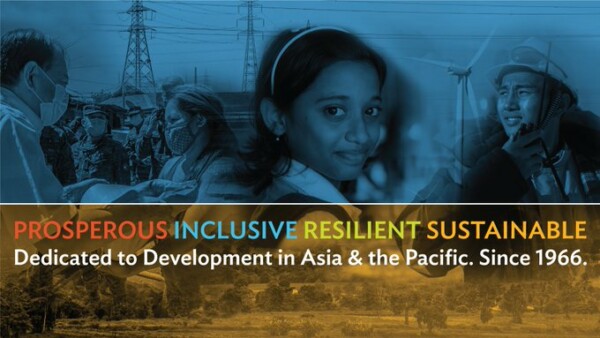
- Climate Change
Second, climate change is fueling conflict, migration, and public health risks around the world. These dynamics will continue to worsen in the absence of strong multilateral action and renewed political will.
The global disruptions we have witnessed this year as a result of COVID-19 may be a preview of the chaos soon to be unleashed from cascading climate tipping points. We have no time to spare.
Bringing the entire world together to achieve the Paris Climate Change Agreement in 2015 is one of my proudest personal achievements as UN Secretary-General. Signed by 197 countries, 4 countries more than the 193 UN Member States, the historic Paris Accord offers us a clear game plan to confront the serious threats to our planet. It sets viable targets to impede rising temperatures, constrict greenhouse gas emissions, and spur climate-resilient development and green growth.
Our pandemic recovery will offer a unique and critical opportunity to forge meaningful progress to meet the aspirations agreed under the Paris Agreement. It provides a collaborative blueprint to ensure the future we want. But we must all work in partnership to realize this future.
In addition, I would like to draw your attention to the International Day of Clean Air for Blue Skies designated by the UN. The adoption of this resolution took less than three months after President Moon Jae-in of the Republic of Korea first had proposed it at the UN Climate Action Summit on September 23rd last year. The accelerated adoption process demonstrates the international community’s high interest and desire for clean air and blue skies. Air pollution and climate change are two sides of the same coin. This year marked the first year of International Day of Clean Air for blue skies, and we need to harness the political momentum to tackle air pollution as a gateway to address climate change.
Taking this opportunity, I extend my deep appreciation to the ADB member states for their strong support and participation in this important campaign.
Another important area in addressing the climate change is to strengthen our capacity of adaptation. Adaptation is as important as mitigation in fighting back and prevent in advance for consequences caused by climate change. As you may know, in my capacity as Co-chairman of the Global Center on Adaptation, I launched, together with Prime Minister Sheikh Hasina of Bangladesh, a South East Asia regional center on Adaptation in Dhaka, Bangladesh on September 8th, 2020. I hope ADB work closely with the regional center. The first was established in Beijing in 2019, another regional office for Africa was also established this week on September 16th, with the African Development Bank hosting the Global Center for Adaptation Africa. .
No single country can confront climate change or achieve sustainable development on their own. We need international solutions. In this regard, we must seize this generational opportunity to build back better from COVID-19, help catalyze climate action, and steer our planet and humanity towards a more sustainable and prosperous future. Through our collective actions, we can turn crisis into opportunity and walk towards a better future.
- Education
Last but not least, education will play a vital role in restoring multilateralism to address COVID-19 and the climate crisis.
Now more than ever before, the world needs a new generation of thinkers and doers. We need thinkers who can appreciate the scale of the challenges before us. And we need doers who will step forward to act.
We have seen so clearly with the recent turn of events and the challenges with COVID-19 that technology, when harnessed appropriately, can be an indispensable resource with immeasurable impacts—far greater than what the current system has shown to be able to provide, as we see today and in this Annual Meeting. So how do we begin to uncover, understand, and utilize the full potential of a technology-enriched learning experience?
I believe that it begins with an understanding that education technology is not simply online learning or even a particular software or program that merges technology with education.
Rather, it is about creating an ecosystem that ensures local adaptability of the program at hand; requires a well-functioning infrastructure; develops sufficient and competent human capital; and is housed within a visionary, committed, and supportive policy environment.
To witness true innovation, we must be prepared for a disruption to the traditional concept of education as we know it, and a reshaping of the existing learning structures in place.
While this may sound a bit drastic, this simply means that we must proactively explore new ways of learning and create a culture of embracing change—change that can break down barriers of inflexibility, inaccessibility, inefficiency, and inequity.
I believe that partnerships flourish when all actors are united in their understanding of purpose and priority.
The leadership role of the government is, therefore, critical in setting an overarching vision and strategy for innovation that is aligned to the country’s larger national education and development priorities.
In keeping with this agenda, local actors (including teachers, schools, businesses, NGOs, and universities) can and should take a more proactive role in leading the change—appropriately adapted to their specific context.
Through such locally-driven initiatives, relevant partnerships will be forged; genuine collaboration will be fostered; and valuable feedback of local experience and knowledge will be channeled back into the system.
- Recovery through multilateralism
In conclusion, in order to protect global public goods, such as the environment, and effectively address COVID-19, we need to renew our commitment to multilateralism.
Education, cooperation, partnership, and global governance, including the strong leadership of the UN and the WHO, are needed to underpin our fight against climate change and COVID-19, as well as its secondary economic and societal aftershocks.
We must remember that in our globalized world, we are only as strong as the weakest link. COVID-19 and climate change do not respect borders, but they do magnify inequities.
COVID-19 has illuminated our interconnected nature. Multilateralism is the only effective way forward.
As such, international cooperation, partnership, and global governance—fortified by solidarity and climate action—must light our way to a more healthy, sustainable, and resilient future for our children and grandchildren.
I thank you for your leadership and action to this end. Let us work together to make this world better for all!
Watch the full event here.
